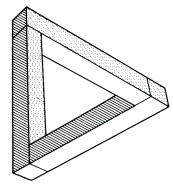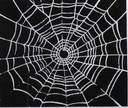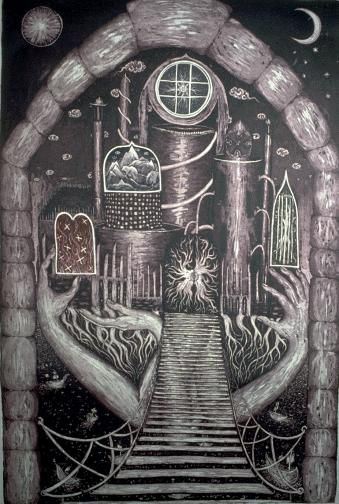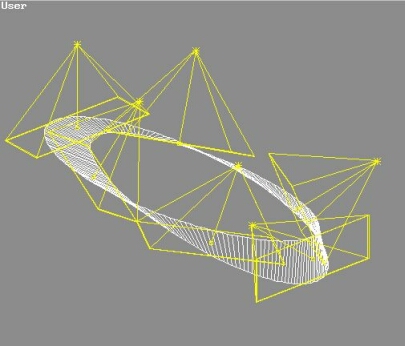
Our Mental House Part 3: The Consequences of How We Think
"Cogito ergo sum", or as it is more commonly known, “I think, therefore I am”, is a philosophical statement made by Rene Descartes over 350 years ago. He was one of the great thinkers of his time and to this day people often quote this statement. I have often contemplated this, even meditated on it many times over the years. Of course, he examined a number of ideas including construction of system of knowledge based on deduction and perception; however, I want to focus on this one idea.
It was the notion of self-awareness and the question of “do we really exist?” that initially intrigued me about this statement. It is an idea examined by many people and I will not revisit it here, though it is a good lead in to what I would like to examine.
When I first began my exploration of my own awareness, and started meditating, I considered Rene’s statement at length. If you think about the statement, it contains the notion that without thinking one does not exist. Even back then, I doubted that I would suddenly cease to be, should I be able to shut my thoughts off altogether.
Through my early meditations, I was able to reduce my thoughts close to the point of having none, which led me to believe this statement is somewhat of a misnomer. I say this because when I got closer to being able to be with next to no thoughts, I never lost my sense of being. This led me to believe that what he considered as the “I that thinks is not all that is “me”. Hence, as I was exploring these ideas, I realized that the real question was “who, or rather what is this ‘I’ that thinks?”
It is questions like “who I am?” relative to the “true self”, that lead to ideas of dualism. I have never been a believer in the idea of dualism, in that I have only ever believed there is one self. To me, what people refer to as the “I” or ego is but an aspect of that self, one that is a necessity in order that we exist at the physical plane.
Further consideration of Rene’s ideas and the notion of the ego, led me to marry to two notions. Considering I exist separate from my thoughts and if it is true that, in a certain context, thinking helps to define that particular “I”, led me to the corollary to his statement. That corollary is “I am what I think”. In fact, much of what I write about has come out of my meditations on what “I” is, its creation, development and how it changes.

It is the “I” or the ego aspect of me that has thoughts and therefore thinks. This was a core idea, one that captured my imagination and which has been the subject of much mediation over the years. It still is to this day. It is this “I” that creates the illusion of duality that separates us from ourselves. If one considers this notion, they may see the paradox in this that I do. Namely, the ego is what we generally know of us though it is not “us”, yet without this “I” that we see as us, we would not be able to function here as physical beings.
I focus on thoughts, their nature and dynamics because while they provide a prison of sorts that traps us away from our true selves, they are also the key to our liberation. While we are alive, it is extremely difficult to avoid having thoughts. I see the issue as not that we have thoughts; it is the thoughts we have.
How does this relate to our personal and spiritual growth? Simply this, we are what we are because of the thoughts we have. They did not come about by accident; they are the result of how we have integrated our experiences. If we want to grow, we must work on what and how we think. While there are many ways to approach this, there is no other way to accomplish this. Further, one will struggle with this if they lack two significant qualities, these being honesty and total personal responsibility.
We need honesty to become objective, to cease seeing things so much through the “I” we have manifested and we need personal responsibility so that we own our lives and have not given them up to others through blame. One cannot change what they do not have “ownership over” and one cannot see what needs to be changed if they remain subjective. Others did not create our lives, we did. Others did not choose who they would be born at and under what circumstances, we did even though we do not remember making the decision. We are here to learn, there is no avoiding this.
Deconstructing the “I” we have manifested requires that we have the intent and desire to do so (1). This can come naturally though more frequently it is the result of our reactions to experiences. We may find we can no longer tolerate certain circumstances in our lives or that we cannot resolve the issues we face by the methods we have used in the past. While we are all connected, these are personal challenges or struggles. No one can help us elevate our awareness or solve our problems, nor can they make things better, and they can only help us do this for ourselves. We need to decide to take action for ourselves.
In parts 1 and 2 of this series (as well as in a number of other pieces I have written), we looked at thoughts as well as how they form complex webs. We are not aware of most of the thoughts we have, they do not occur at the conscious level. What we can do is be aware of the conscious thoughts we have and the feelings they manifest. It is our feelings or emotions that provide the link back to our thoughts. It is they that provide the map to the thoughts we have that are out of balance or in conflict.

During any given day, we have a plethora of emotions. We tend to pay them little attention, often choosing to override them unless they are strong enough that we cannot ignore them. Why do we do this? We do this because our focus is without and not within. We are always doing something, going somewhere, planning something, analyzing something, wishing and hoping for things and not simply being. This makes the “I” stronger and builds even more layers of thoughts separating us further from ourselves.
We can still think about things, plan for things and so on, but we do not need to devote ourselves entirely to this way of being. This is something we have been doing for thousands of years; it is something we need to reduce doing to come into the new age of awareness. It is a hard habit to break. We have built a world that grabs our attention, one that holds it like a vice grip. To break the grip we need to summon our will, thinking about it is rarely sufficient. We need to change our relationship with the world and ourselves.
This does not happen overnight, with rare exceptions. It happens because we devote ourselves to it. We recognize and acknowledge our ignorance and set about changing it. The challenge is one of letting go and relinquishing control over that which we cannot change though we come to believe we can. So, how does one go about letting go? We do this by changing our mental house. The minds we have built direct us through life. As Shakespeare stated “All the world's a stage, and all the men and women merely players”. Though he meant it somewhat differently, it is apropos for this discussion. It does not need to be this way.
When we have had enough of a situation, we tend to do one of two things. We run away from it or we begrudgingly try to learn to live with it. Neither of these is an answer, as you well know. There is another way, and that way is to delve within to try to find out why it is occurring. Discerning the reasons can be very difficult, especially when the lesson is one that we chose to take on in this lifetime and not one that has come about through our reaction to experiences.
For example, what is the lesson of a physical handicap or abusive parents or poverty or any one of a number of situations that are beyond our control? Certainly one can come to an understanding about this during their lifetime, but unless one has the ability to reach their inner self, they have no way of knowing if this understanding is “true” or not. Other lessons are ones we have added to our list, these are such as issues with relationship issues, challenges in holding a job, or dealing with the pressures and stresses of life. These come about due to our circumstances as well, though our reactions to them come about due to what we have learned in this life. We do not bring our action-reaction sets or A-R sets (2) with us into a particular incarnation; we build these as we experience.
We have looked at action-reaction sets or A-R sets (1), those being the thought forms that we have built up into a web of thoughts by repeating actions. Another way to look at them is as ruts in space, these being stereotyped reactions that we use to perform routine functions from body movements right up to our minds habits of thinking and reacting certain ways to our experiences. We have an essentially countless number of these and pay them little attention until they interfere in our lives and cause us problems.
To move past issues we must learn to recognize that we created the thoughts we have from our reactions to experiences. They are not an accident and they are not fixed or rigid, though they can appear so. When we react to an experience, we empower certain thoughts. These thoughts connect to other thoughts that share common attributes with it. It is how we react that determines this, and when we let our reactions lead us, we build more junk programming into our minds. We do need to work on the poorly programmed in our minds, but we also need to take a more active role in this.
I ended the previous piece in this series with the following, which is from The Tarot by Robert Foster Case (1947, Macoy Publishing Company):
“...sub-consciousness repeats and elaborates the mistaken results of faulty, superficial, self-conscious observation. Being at all times uncritically amenable to suggestion, and at the same time the channel of telepathic communication, sub-consciousness is the source of most of the foolish notions which cause our maladjustments.”

As I mentioned there, the non-conscious mind takes its cue from our conscious choices. We must work on our objectivity and our reasoning skills. We must cease making assumptions that what we believe to be the case is necessarily true, we must assume we can be wrong and evaluate everything as objectively and with solid reasoning skills.
Have you ever observed someone and then thought to yourself “they did this for this reason”? Of course you have, we all have; however, this is erroneous reasoning. I explored some of this in the essay “Know Yourself” (2) of the Twin Powers website, where I state:
“Yes, what we think people feel about us ends up being more important to us than what they are actually thinking or feeling. The reason this is so is that the greatest power to affect us is ourselves. We react to our own reactions, thereby making choices based on what we think others believe or will do, not on what is actually true for them, and our learned tendencies. We do this even though we do not know what they are actually thinking. We tend to assume that what they show us by their actions is an accurate reflection of what they are thinking, even though in all likelihood they too have many programming issues in their own minds. I am sure you have encountered this a few times, where you thought something and found out later it was not true.”
A good example is where we observe someone doing something and then think we know why. It is highly unlikely, though not impossible, that we do. What is more likely is we are assuming they are doing it for the same reasons we would if we were in their shoes. The problem with this is that we have no idea what they are actually thinking; they are not us and will have their own reasons, ones often different from ours.
An example from my life might help you understand what I mean. I was chatting with a man who had been my supervisor for several years, and the conversation came around to long hair. He asked me why I do not cut my hair. I said something to the effect of “why should I do that?”, beyond the fact that the corporate world tends to frown on it.
He suggested that I should quit rebelling against the system and proceeded to tell me that he too had long hair when he was younger and then cut it "when he grew up" because it was really just an act of rebellion. I chuckled and stated something to the effect of “well, that is why you cut yours, but have you ever considered that not all who have their hair long are doing so because they are being rebellious?” He hummed and hawed, but actually said he thought so. I suggested that everyone is different and while we may do the same things, we do not necessarily do so for the same reasons.
We tend to project our thoughts onto others. When we do something for a reason we assume they are doing the same. While this may be true, and indeed often is, it is not necessarily so. The above is an example of erroneous reasoning. We make an assumption and then make it a truth. In the future, we act as if this assumption is indeed the case when often it is not. We do the same thing when we stereotype people, and this is precisely the kind of thinking that leads to interwoven webs of poor programming in our mind.

We can stop doing this, not all at once of course, but gradually. We start by not accepting that what we think we know is actually the case. Sure, if I drive my car into a wall at 30 mph, the results are predictable, and it will not matter whether you or I do it, the result will be the same. This is not the case for anything but actions subject to the laws of physics or chemistry. I can do the same thing as you for completely different reasons, to assume that I did them for the reasons you would is erroneous reasoning.
When we start to do this, it sends a signal to our non-conscious mind that guides how it integrates experiences. We will start to reduce the tendency to jump to conclusions and then accept those conclusions as facts. We will start to see more clearly as well, for the mind will start to reduce its tendency to pre-judge what it experiences allowing us more clarity in the moment, and the window will become clearer.
As they say, garbage in, garbage out. We feed this process when we fail to take the time to be more objective and simply go with our programmed subjective notions. The result of not doing so is that we will see more clearly and it will reduce the tendency to associate ourselves with the dirt on the window rather than the self "behind it". This will give us more access to our inner light.
We start this by understanding and fully accepting that our minds do not arbitrarily build webs of thoughts. The integration of experiences, which builds our mind, does so based on our self-conscious thoughts. If we are quick to judge and decide, and base our interpretation of experiences on these judgments, our mind will follow suit. It will do so all of the time, not just some of the time. In order to reverse this process we start by assuming that what we believe may not be true, that the ideas we have could be based on misinterpretation, erroneous reasoning even if we “really believe it to be true”. This is what creates the separation between the true self and the “I”, the aforementioned illusion of duality.
Imagine that every erroneous thought you have is like dirt on a window. It does not take much dirt for the image you see through the window to be distorted and unclear. The more dirt there is on the window the harder it is to see through. The dirt is synonymous with the poor programming of our minds and the dirt on it is the “I” that we become. We have a mind and we need it to exist here, but when we allow it to become thick with junk, it obscures our true self and takes on a life of its own separate from our “true self”. This is the message the great spiritual leaders throughout history have tried to convey through their words, often in the form of allegories. It is an important message for us to not just hear and listen to but to contemplate.

End of Part 3
==> Continue to Part 4: What We Are Conscious Of
© 2012 Allan Beveridge
References (* - denotes essays only available to site members of TheTwinPowers.com):
